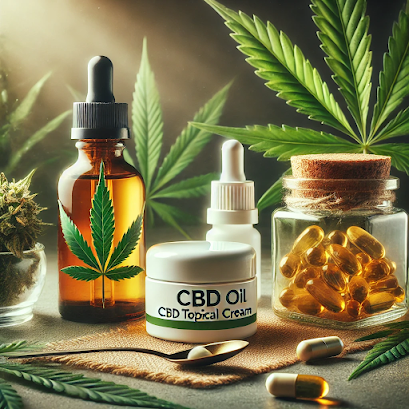How to Ensure Compliance in Bulk CBD Distribution
As the CBD industry continues to grow, compliance has become a critical factor in maintaining a successful business. Bulk CBD distribution requires adherence to a variety of laws and regulations to ensure the safety of consumers and the legitimacy of operations. In this blog post, we’ll explore how to navigate compliance challenges and maintain a trustworthy reputation in the CBD industry.
Understanding the Regulatory Landscape
Federal Laws and Guidelines
Farm Bill Compliance
The 2018 Farm Bill legalized hemp-derived CBD products containing less than 0.3% THC. To comply:
Ensure products meet the THC threshold.
Source hemp from federally approved farms.
FDA Guidelines
The FDA oversees the labeling, marketing, and safety of CBD products. Key requirements include:
No unsubstantiated health claims.
Clear ingredient labeling.
Warnings for potential allergens or drug interactions.
State-Specific Regulations
CBD laws vary significantly between states. As a CBD supplier, staying informed about state-specific requirements is crucial. Key areas of variance include:
THC limits (some states have stricter thresholds).
Licensing requirements for distribution.
Permitted product types (e.g., edibles, topicals).
Steps to Ensure Compliance
1. Partner with Trusted Bulk CBD Distributors
Vetting Your Distributors
Work with distributors who prioritize compliance. Look for:
Certifications and licenses.
Transparent sourcing practices.
Third-party lab testing for quality assurance.
Long-Term Partnerships
Establishing strong relationships with compliant distributors ensures consistent product quality and regulatory adherence.
2. Implement Rigorous Testing Protocols
Third-Party Testing
Third-party testing is essential to verify the safety and legality of CBD products. Tests should confirm:
Cannabinoid content.
Absence of contaminants (e.g., pesticides, heavy metals).
Compliance with THC limits.
Certificates of Analysis (COAs)
Always obtain COAs for each product batch. These documents provide proof of compliance and transparency for your clients.
3. Ensure Accurate Labeling and Packaging
Required Information
Labels must include:
Product name and CBD content.
THC levels (to confirm compliance).
Ingredient list and potential allergens.
QR Codes and Batch Numbers
Including QR codes that link to COAs and batch numbers improves transparency and builds trust with customers.
4. Stay Updated on Legal Changes
Monitor Federal and State Laws
Regulations around CBD are constantly evolving. Regularly monitor updates from:
The FDA.
State agricultural departments.
Industry news outlets.
Legal Counsel
Hire legal professionals experienced in the CBD industry to ensure your business remains compliant with new laws.
5. Maintain Proper Licensing and Documentation
Obtain Necessary Permits
Many states require specific licenses for manufacturing, distributing, or selling CBD products. Ensure all necessary permits are up-to-date.
Recordkeeping
Maintain detailed records of:
Supplier certifications.
Testing results.
Transaction histories.
These records can help demonstrate compliance during inspections or audits.
Common Compliance Challenges
Regulatory Variations
Navigating differing state and federal regulations can be challenging. A centralized compliance team can help ensure consistency across operations.
Product Mislabeling
Inaccurate labeling can lead to penalties and product recalls. Regular audits of labels and packaging are essential to avoid mistakes.
Supply Chain Integrity
The integrity of your supply chain significantly impacts compliance. Vetting all suppliers and distributors ensures you’re working with trustworthy partners.
Benefits of Ensuring Compliance
Consumer Trust
Compliant practices build consumer confidence in your brand. Transparent labeling and high-quality products foster loyalty and repeat business.
Avoiding Legal Issues
Compliance minimizes the risk of fines, lawsuits, or business shutdowns. Proactively addressing regulations ensures smoother operations.
Competitive Advantage
Being a trusted CBD supplier who prioritizes compliance sets you apart in a competitive market. Clients are more likely to choose partners who can guarantee safe, legal products.
Final Thoughts
Ensuring compliance in bulk CBD distribution is a continuous process that requires attention to detail, collaboration with trusted Bulk CBD Distributors, and staying informed about regulatory changes. By prioritizing testing, accurate labeling, and robust supply chain management, you can safeguard your business and position it for long-term success in the dynamic CBD industry.
.png)



Comments
Post a Comment